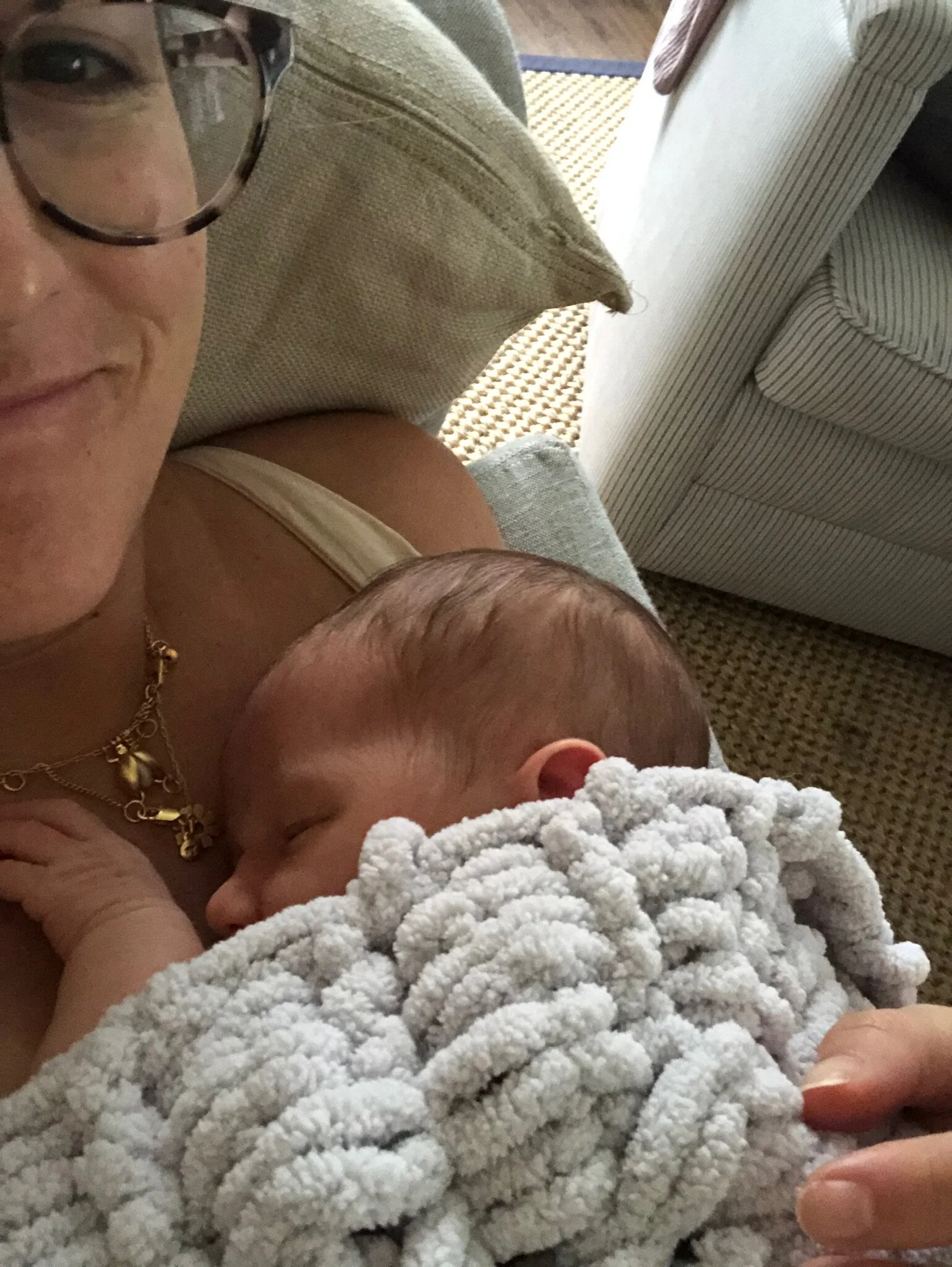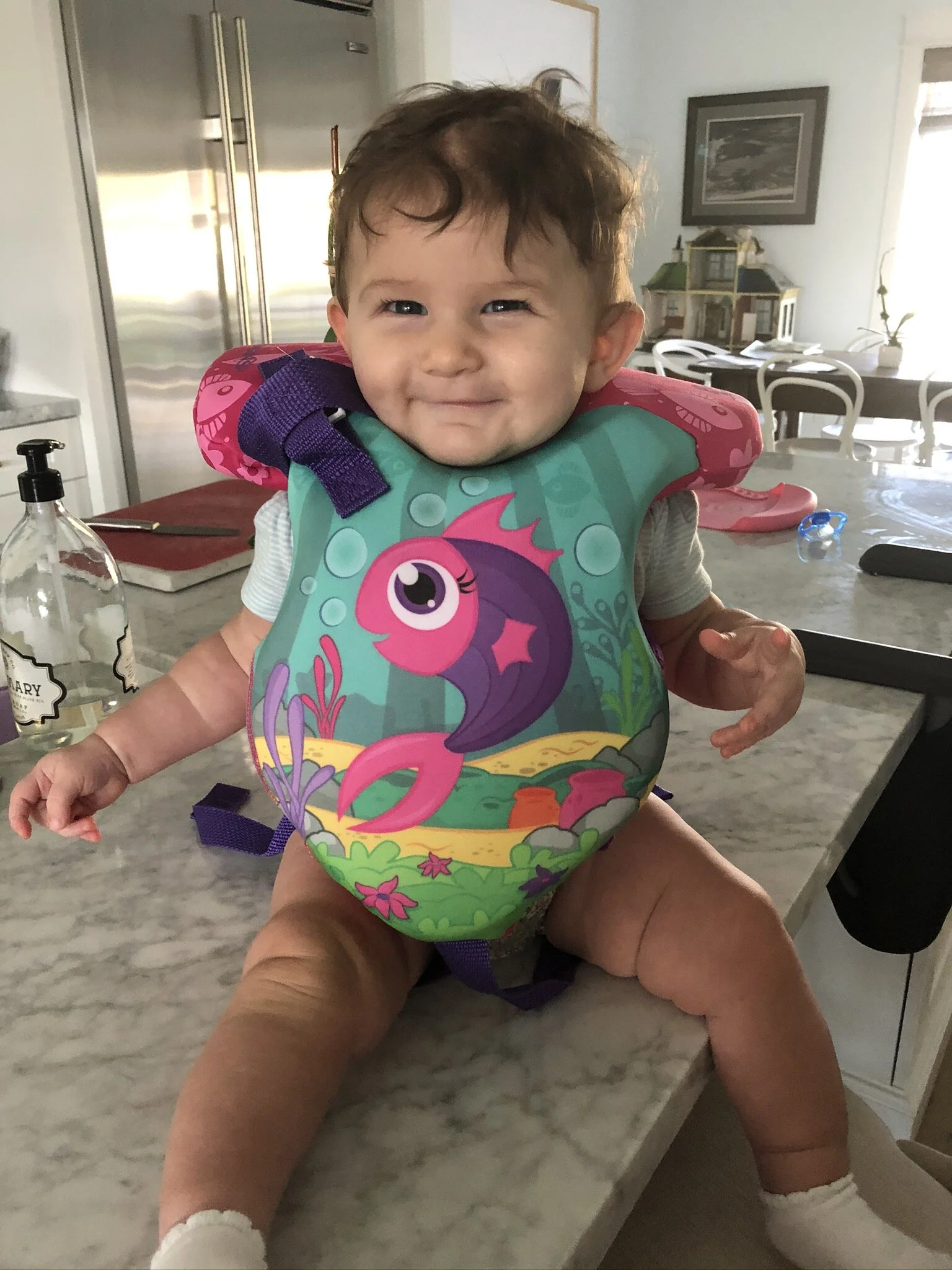Anxiety After Baby
“Babies don’t come with a manual.” We hear that a lot. That parts true. Often, however, we mistakenly think that because there’s no manual, that means there’s no way to prepare, so we might as well not do it. That’s the part that’s wrong.
In reality, there are tools that we can arm ourselves with before baby is here, and I wanted to write down some of what has worked for me, in case it might help you or someone you know.
This article is intended to share personal experience only. I am not a doctor, or a trained mental health professional. I only intend to share what has worked for me.
There’s been a shift in the past few years from talking about Postpartum Depression, to talking about “Perinatal Mood and Anxiety Disorders (PMADs),” and I for one, am extremely grateful for this shift. Having a baby is hard, like really hard. It’s difficult to explain what’s so hard about it—the total lack of control of your own schedule, the sleeplessness, the constant worry about the baby’s sleep/food intake/safety/temperature/development/poops/the list goes onnnn and onnn….
After Ellie was born, I experienced the weepiness, the exhaustion, and the mood fluctuations known as the baby blues for about two weeks, which, according to my therapist and my research is about average. (Please note, if you have been experiencing the baby blues for longer than three weeks, seek help immediately by calling The Motherhood Center at 212-335-0034). I learned in my birthing class at Hypnobirthing of Connecticut that a woman can be diagnosed with Postpartum Depression anytime within 12 months of having a baby—this was shocking for me because I was under the impression that it was immediate.
My mood was largely under control, with a few difficult days and episodes, but when Ellie and I made the move to Florida, my anxiety kicked into high gear. New baby, going back to work, my mom was far away, my husband was working all the time, new living situation, and ZERO friends put me in a really nervous place. I think most new mothers feel like there are a thousand things to remember and worry about after having a baby, but my worry, physical symptoms like heart palpitations and nausea, and feeling like I couldn’t turn my brain off became constant.
I’ve also experienced some OCD symptoms, such as repeated visualizations of Ellie in terrible situations, which don’t leave my mind, and while I know in the rational part of my brain are unlikely to happen, still bring my to tears. It’s like I understand that these thoughts are strange and disturbing, but I can’t get them to go away.
Depression, anxiety and bipolar disorder all run in my family, so I was mentally prepared to have postpartum depression. While I’ve never been diagnosed with any of those brain diseases, suddenly having one was one of my greatest fears about becoming a mom. I figured if I ever was going to develop one of those brain diseases, it would likely be after having a baby. So I decided to make a plan. There were a few things that I did to help set myself up for success after baby that I think have been really key in this time period for me.
First, I found a therapist who specializes in postpartum recovery while I was pregnant. I wanted to establish a “normal,” with someone, who would be able to help me read what normal after baby would look like for me. That way, if I did need help, I already had a relationship with someone, and didn’t have to spend the time working to establish one while I was down in the depths. While my experience hasn’t been depressive, I am thankful that I learned this language about postpartum anxiety and postpartum OCD, so that I could identify these things in myself. I saw this therapist all through the summer and fall while we were still in New York, and then when we moved down to Florida, I waited a few weeks to find someone new, and it was a mistake. I should have found someone immediately. (I’ve found a new therapist down here, and she’s great.
Second, I made sure Michael knew these symptoms, and signs as well, so he could help me identify them. I literally wrote a list of things I might say or do while feeling depressed with my therapist, and gave it to Michael so that he would know that if I said one of those things to him, it was time to get more help. Asking those of us with the illness to get out of it on our own is really hard, so I recruited help.
Third, I joined a postpartum support group. I wish this could have gone on forever. It was totally instrumental in me learning how to get out of the house successfully with the baby. I knew that I had a place to go that was safe for Ellie, where I could feed or change her whenever I needed to, and I could meet other moms. I literally cannot say enough about how important this group was for me. I met other moms with babies Ellie’s same age, and created friendships so suddenly, I had moms and babies to go on walks with, or meet for a glass of wine, or hang out at each other’s’ houses. I learned in this group that PMADs are based in isolation. Feeling like you are alone all day and stuck in the house with a new baby who is in control of your entire existence is really isolating—I found myself deeply lonely at times, and without this group, I know I would have felt that loneliness intensely for much longer periods of time.
I’m still dealing with the anxious thoughts and feelings, but I’m becoming more aware of things I can do to combat them. For me, going outside is a big one. I need to stop what I’m doing and feel the earth under my toes. Another one has been needle-pointing (yes, I moved to Florida and immediately became an 80-year-old woman). The rhythmic up and down of the needle and following a pattern gives me somewhere to channel my mental energy (what’s that saying about idle hands…). Exercise is also really, really helpful.
Anxiety tricks us in to thinking that we’ve never done this before, so we can’t possibly have the tools to solve this problem, but that isn’t true. We’ve all been pushed to our limits before, we’ve all been stressed and struggled. It’s likely that whatever helped us get through those other difficult times are the same skills that will help us as new parents, but I think the important thing to remember is that you’ve got to identify some of those tools BEFORE baby is here because anxiety also makes us believe that the problem is so huge and all-consuming that there isn’t a way out. Someone who’s dealing with anxiety can only watch as the light at the end of the tunnel recedes—she needs her support system to remind her that she has the tools to get through it.
With Love and Lettuce,
Anna




